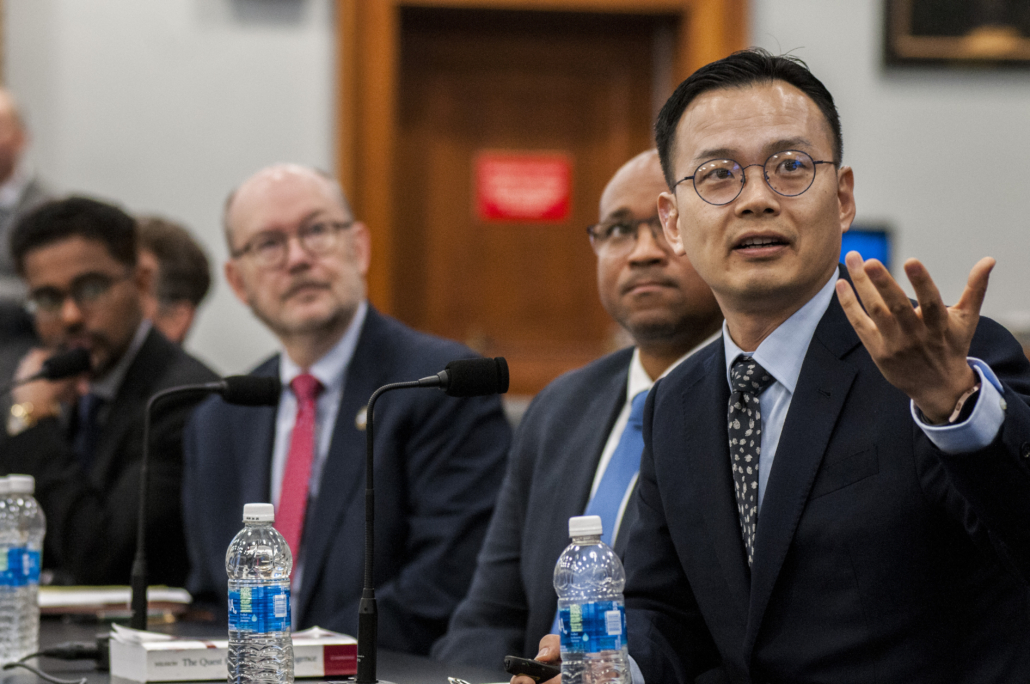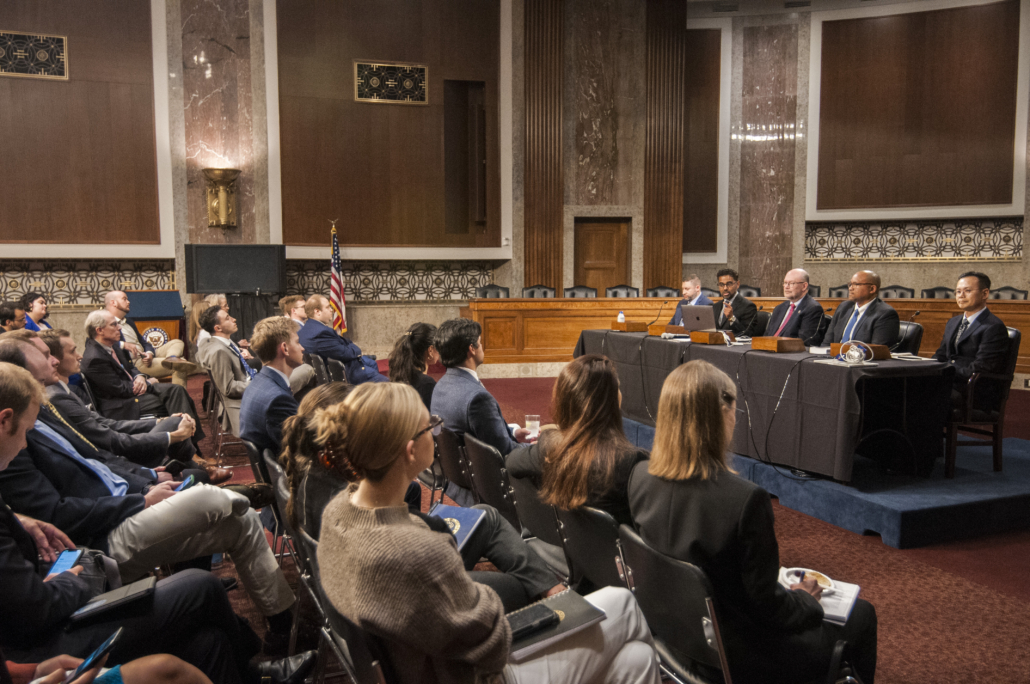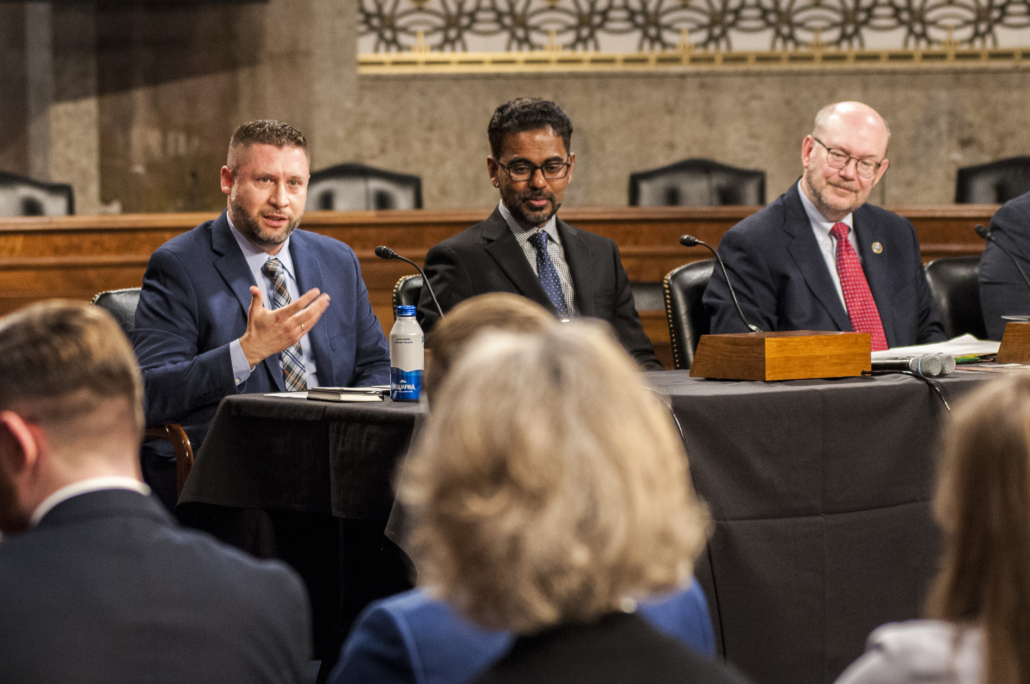Recent Advances in AI Only Possible Because of Decades of Federal Investments in Fundamental Research, Experts Across Academia, Government, and Industry Tell Congress
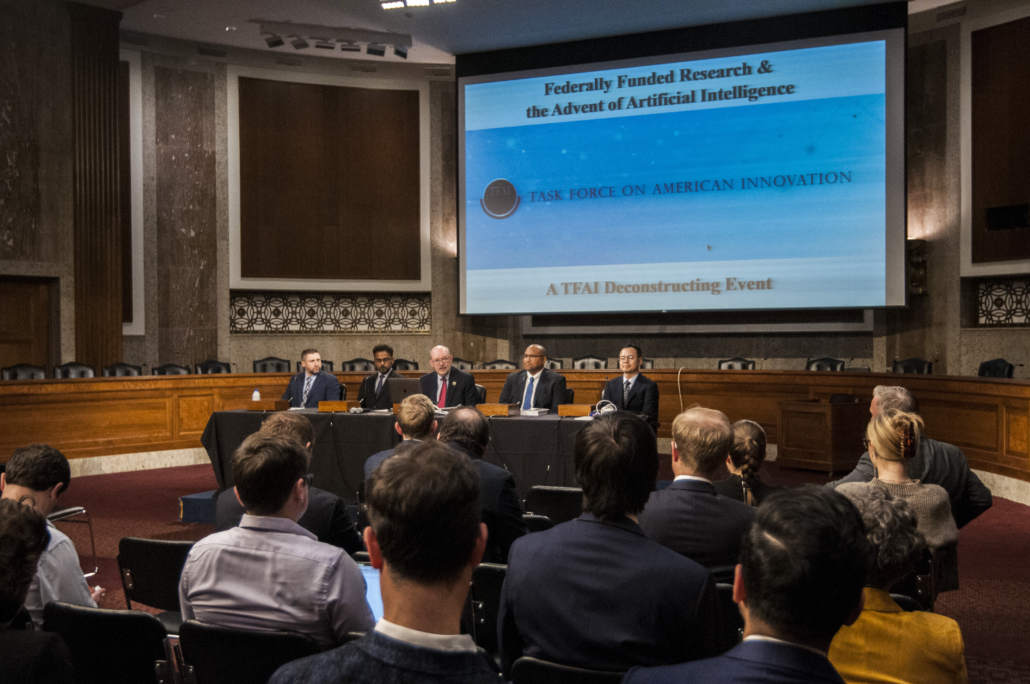
An audience of Congressional staffers and science policy professionals listen as Dan Reed, center, chair of the National Science Board, moderates the proceedings of the TFAI Deconstructing AI Senate briefing.
Last week, the Task Force on American Innovation (TFAI), an alliance of American high tech companies and businesses, research university associations, and scientific societies, held two events in Congress to “deconstruct” artificial intelligence and demonstrate how the decades long federal research investment which has powered in the latest advances in the AI fields. The briefings were titled, “Federally Funded Research and the Advent of Artificial Intelligence: A TFAI Deconstructing Event.”
The panel of speakers, composed of computing and IT experts from across academia, government, and industry, made the case that these advances could only have happened because of the federal investment in such areas as hardware, software, and high performance computing, as well as several others.
The briefings, one held on the House of Representatives side of Capitol Hill, and the other on the Senate side, were moderated by Daniel Reed, current chair of the National Science Board and presidential professor in computational science at the University of Utah. For the House-side event, the panelists included Odest Chadwicke Jenkins, professor of robotics, electrical engineering and computer science at the University of Michigan; Prasana Balaprakash, director of AI programs and distinguished R&D staff scientist at Oak Ridge National Laboratory; Jeff Welser, chief operating officer, IBM Research; and Kee-Bong Song, Vice President, head of Cellular and Multimedia Lab at Samsung Semiconductor US. For the Senate-side briefing, Gary Givental, chief architect at IBM Consulting Cybersecurity Services and master inventor at IBM, subbed in for Dr. Welser.
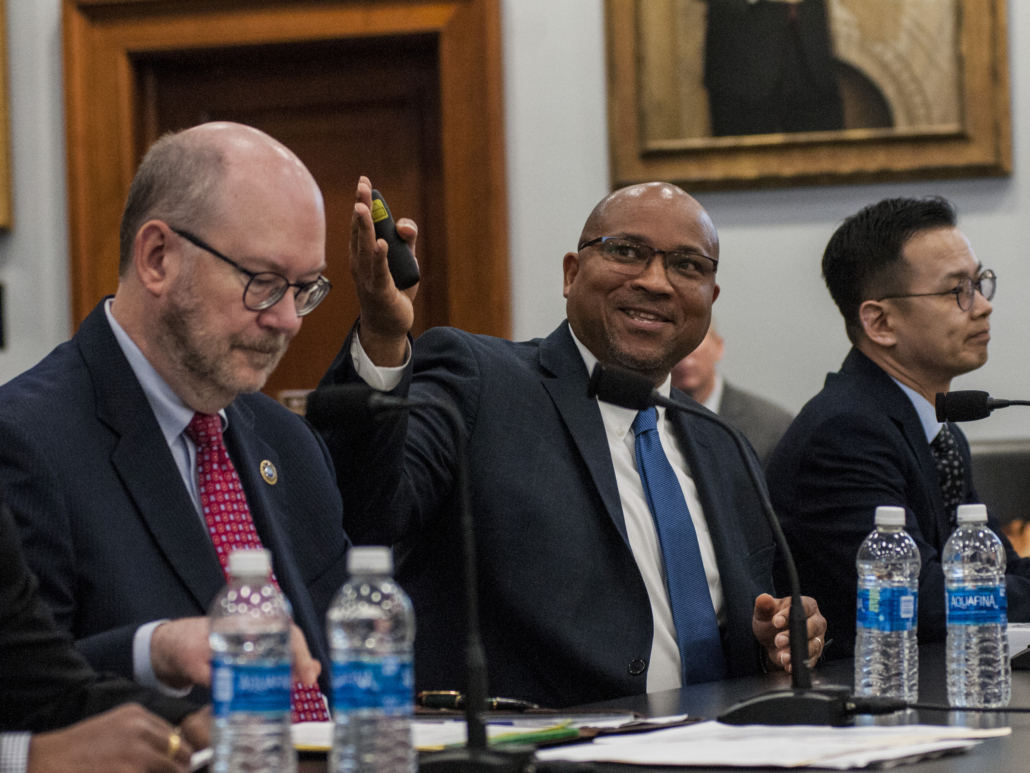
Professor Jenkins, of the University of Michigan, gesture to a slide of his remarks at the House briefing.
The speakers represent the three parts of the U.S. innovation ecosystem (industry, universities, and researchers), and they had a clear message: the current advances in AI were only possible because of decades of federal investment in fundamental research in a wide range of the physical sciences. “Advances in AI are intrinsically tied to investments in basic research across the federally funded research enterprise,” said Scott Corley, Executive Director of TFAI. If the country hopes to stay competitive in the various subfields of artificial intelligence, it must commit to fully funding the Chips & Science Act and the federal research agencies included in that legislation, especially NSF.
CRA was a sponsor of both events and recruited Dr. Reed, a former chair of the CRA Board of Directors, and Professor Jenkins, a current member of the CRA-WP Board and a former member of the CCC Council, to take part. CRA was among the first members to join TFAI in 2004 and has had a major role in many of the coalition’s activities, including the first TFAI Deconstructing event and several of the Benchmarks Reports that the coalition has released.


